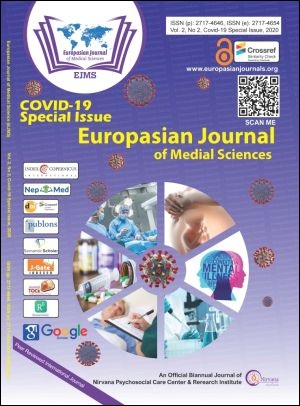The impact of Covid-19 on Domestic Violence and the Black, Asian and Minority Ethnic Community
Keywords:
Black Asian and Minority Ethnic, BAME, Coronavirus, COVID-19, Domestic violence (DV), PandemicAbstract
The Coronavirus disease, also known as Covid-19, which is purported to have started in Wuhan, China, was declared a pandemic on 11th March 2020. In the UK, the government, together with the National Health Service (NHS), have taken various approaches to prevent and slow down the spread of coronavirus. These included imposing a ‘lockdown’ of the country (e.g. closure of schools, businesses, parks, leisure centres, and tourist attractions), along with the emphasis on handwashing, social distancing, the use of face masks and only permitting essential travel within the UK and between the UK and other countries. These approaches have been undertaken to varying extents and within different timeframes across the four nations of the UK. Like many other countries worldwide, the UK was not prepared for such pandemics which resulted in the inability to assess the most appropriate approach to contain the spread, including the availability of Personal Protective Equipment (PPE) for frontline workers, particularly those in health care. As the crisis continues several striking social issues have emerged which may, in part, be a consequence of the measures taken. These include the escalation in domestic violence (DV) and disproportionate burden of disease among the Black, Asian, and Minority Ethnic (BAME) community. The impact of Covid-19 may remain for a long time if appropriate measures are not put in place to address the health inequalities in time.
Downloads
Downloads
Published
How to Cite
Issue
Section
License
Copyright (c) 2020 Bindu Devkota Sapkota

This work is licensed under a Creative Commons Attribution 4.0 International License.
The author(s) retain the ownership of the copyrights for their work published in EJMS without any restrictions. Upon submission, the author(s) grants EJMS a license to publish, including to display, store, copy, and reuse the published content.
License to Publish
By submitting a manuscript to EJMS, the author(s) grant the journal a non-exclusive license to:
- Publish and distribute the content in all formats, media, and platforms (both existing and future), while identifying EJMS as the original publisher.
- Reproduce, display, and store the content in both print and online formats, including institutional and digital repositories.
- Translate, adapt, and summarize the work, including reprints, extracts, and abstracts.
- Develop derivative works based on the original content.
- Include the work in electronic databases and provide links to third-party materials.
Creative Commons Licensing
In addition to EJMS’s publishing rights, authors grant third parties the right to use, share, and distribute their work under the Creative Commons Attribution 4.0 (CC BY 4.0) International License. This allows unrestricted use of the content, provided proper attribution is given to the original author(s) and the journal.

